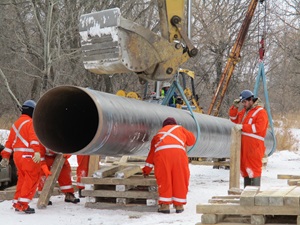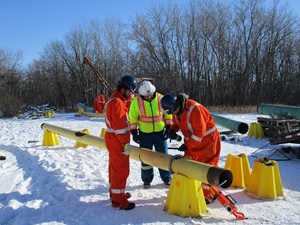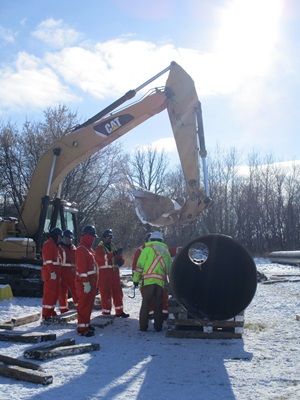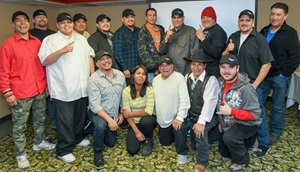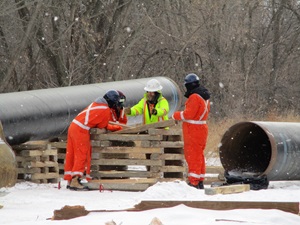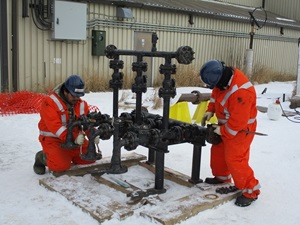Indigenous Pipeline 101 training program wraps up in Manitoba
Projects like the L3RP enable prosperity and create jobs for Canadians, including a growing Indigenous workforce
“I made it!”
Amanda McKinney tilts her head, flashes a peace symbol, and smiles broadly for the camera.
Moments earlier, when she heard her name called, she jumped from her chair, raised both hands high into the air, and danced her way to the front of the hotel conference room in Portage La Prairie, MB to receive the reward—a certificate of completion for her hard work of the previous two weeks.
McKinney, a resident of Swan Lake First Nation (SLFN), was one of more than 50 graduates of Pipeline 101 training sessions that took place at the Dakota Tipi First Nation late in 2017. “For me personally, it was an amazing experience,” says McKinney. “It gives me opportunities beyond my imagination.”
This year, another 56 Metis and First Nations students graduated from the training in Manitoba, bringing the three-year total to 260 graduates in Alberta, Saskatchewan and Manitoba.
The comprehensive, 12-day Enbridge-led sessions provided pipeline-readiness training for candidates interested in obtaining employment in future construction projects like the Line 3 Replacement Program (L3RP). Training included seven days of hands-on work facilitated by Straight Talk Aboriginal Awareness Training and five days of safety ticket training in the classroom and online, delivered by Haztech.
Among the topics covered were:
- Health and safety requirements, including H2S and standard first-aid;
- Pipeline-specific instruction, such as ground disturbance, cribbing and fencing;
- Basic theory and practical fundamentals of pipeline construction; and
- Specialty skills training, including ATV operation, chainsaw safety, surveying, and oxy-acetylene cutting and burning.
Image gallery: Pipeline 101 training to employment program
“Our instructors were patient,” says graduate Gerald Scott, also a resident of SLFN. “We kept at it and we practiced. I know a lot more than I did before coming here. I learned a lot by asking questions, so I can bring that back to my Elders and explain to them the things that go on, the safety measures and all of that other stuff.”
Scott, who has since augmented the Pipeline 101 training by completing a four-week Pipeline Monitoring Safety course at SAIT Polytechnic in Calgary, is one of many graduates who have secured jobs on the L3RP.
“Ultimately, it comes down to individuals and supporting their success,” explains Kim Brenneis, Enbridge's Director of Community and Indigenous Engagement. “Enbridge has a significant interest in supporting transferable skills development, since we recognize that much of pipeline work is temporary.
“We’ve made a concerted effort to identify Indigenous candidates for work opportunities and provide them the skills and training they need to secure work—not only on Line 3, but wherever their careers will take them,” he adds.
In the meantime, McKinney, one of approximately 20 women who’ve completed the training, concludes with a piece of good advice: “If you want to accomplish something, just go out and do it.”





